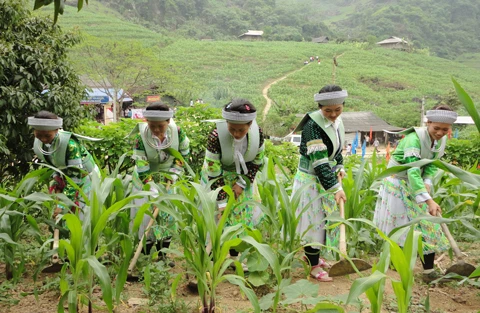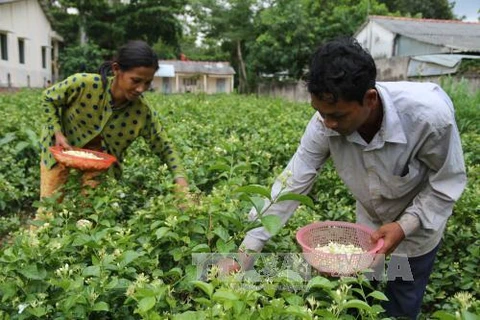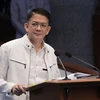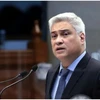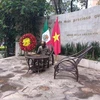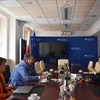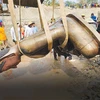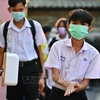Hanoi (VNA) - In her article marking the 70th anniversary of the Economic and Social Commission for Asia and the Pacific (ESCAP), Under-Secretary-General of the United Nations and Executive Secretary of ESCAP Shamshad Akhtar argues that this important milestone in the organisation's history is an opportune time to reflect on the Commission's achievements as well as some of the outstanding regional challenges, in particular ongoing endemic poverty.
Following is the full text of the article:
The United Nations Economic and Social Commission for Asia and the Pacific (ESCAP) marks its 70th anniversary this year. This is a rare opportunity for the oldest and largest of the United Nations regional commissions to take stock of past achievements, but also to spotlight where efforts need to be concentrated to meet new challenges.
Over the past seven decades, Asia and the Pacific has undergone a seismic shift. Out of the rubble of the Second World War, a group of nations came together to change the economic and social trajectory of the region. Today, Asia and the Pacific accounts for over a third of the world’s output and is on track to make up half of global GDP by 2050. We are home to 61 per cent of the world’s foreign exchange reserves, and are a favored destination for foreign direct investment. We are unwavering advocates of multilateral solutions to global problems. Above all, we have made impressive in-roads in the battle against poverty. In 1990, 50 percent of our population lived in poverty. In 2012 this had fallen to 15 percent.
But with 1 in 10 people still living in extreme poverty, there remains much work to be done to achieve inclusive growth and a fairer distribution of wealth. We must redouble our efforts to deliver deeper regional integration and cooperation to increase productivity; enhance domestic and regional demand; improve the quality of governance; strengthen and diversify our financial systems to support trade and investment; and using technology to benefit society and business.
The resolute implementation of the 2030 Agenda for Sustainable Development together with the Paris Agreement on Climate Change and the Addis Ababa Action Plan will serve the Asia-Pacific well. As the only regional intergovernmental platform, ESCAP provides a space for consensus-building to address regional systemic challenges. In response to the 2030 Agenda and to serve our members better, the Commission has reconfigured itself to exploit its strengths. We have created several regional forums to promote sustainable development and regional economic cooperation and integration.
The Asia-Pacific Forum on Sustainable Development has enabled us to agree on a regional road map to steer the implementation of the 2030 Agenda and sets out priority areas, implementation arrangements and processes to track the progress of the 17 Sustainable Development Goals (SDGs). We have placed the issue of financing for development at the forefront of our efforts and used consultations to deliver tailored support to our member states. An Eminent Expert Group on Tax Policy and Public Expenditure Management for Sustainable Development has been established to advise on public finance. We have provided advice on how to support successful Public Private Partnerships. Our work on regional economic cooperation and integration promotes more integrated, sustainable and resilient connectivity while ensuring a balance of social, economic and environment considerations.
Our Agenda 2030 policy focus is beginning to deliver results. ESCAP member states are behind a regional push to achieve SDG7, sustainable energy for all. This is important for the 420 million people in Asia and the Pacific who still live without reliable access to electricity, but also to expand the application of renewable energy and energy efficiency, both critical to the future sustainability of the region.
Information Communication and Technology (ICT) could help support sustainable development in our region. We are assisting countries take forward a Master Plan for an Asia-Pacific Information Super Highway. Its goal is simple: better communications infrastructure to enable widespread use of ICT across the Asia-Pacific. The knowledge based societies to which we aspire depend on it, as do modern public services. Increased mobile internet access and broadband could help lower the cost of delivering health and education services through e-health and e-learning platforms. ESCAP is focused on assisting our region to make the most of these opportunities.
Work continues to find financing solutions to ensure the effective delivery the 2030 Agenda’s Sustainable Development Goals. For this, tax policy must be designed to mitigate inequalities, and bridge the development divide. International and regional partnerships must be built to find innovative financing solutions for development challenges – with the support of development banks. Public Private Partnerships, combined with more integrated, deeper capital markets, must be part of our financing package. ESCAP member states will continue to work together to share financial innovation best practices and to address capacity gaps where they exist.
Seventy years ago ESCAP was created to help our region recover from war and conflict. Our region’s growth story since then has been remarkable. But as long as poverty and inequality persist, ESCAP will remain focused on the future, on supporting growth and sustainable development across Asia and the Pacific.-VNA


